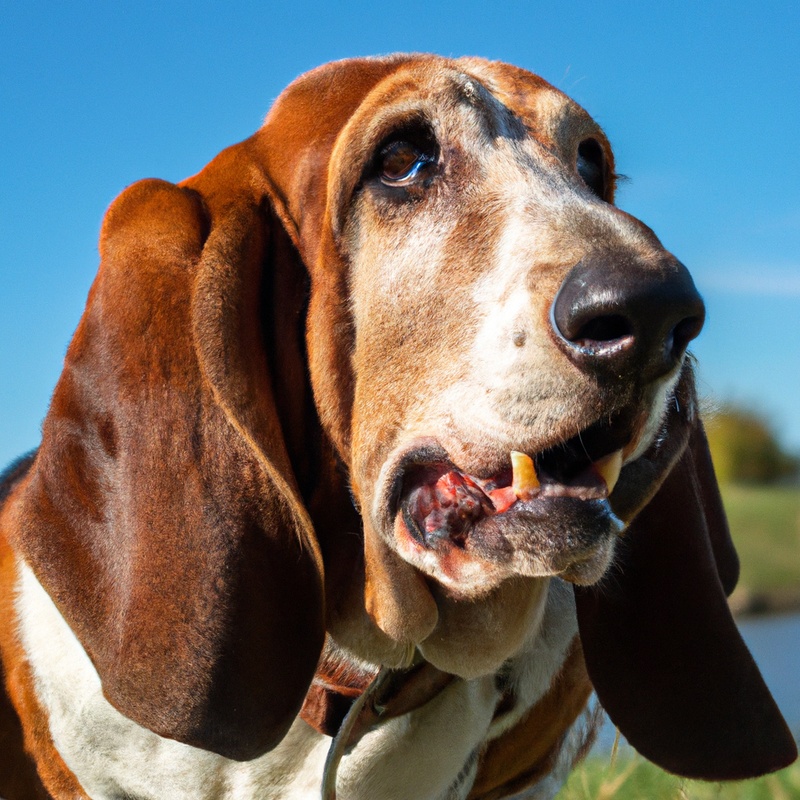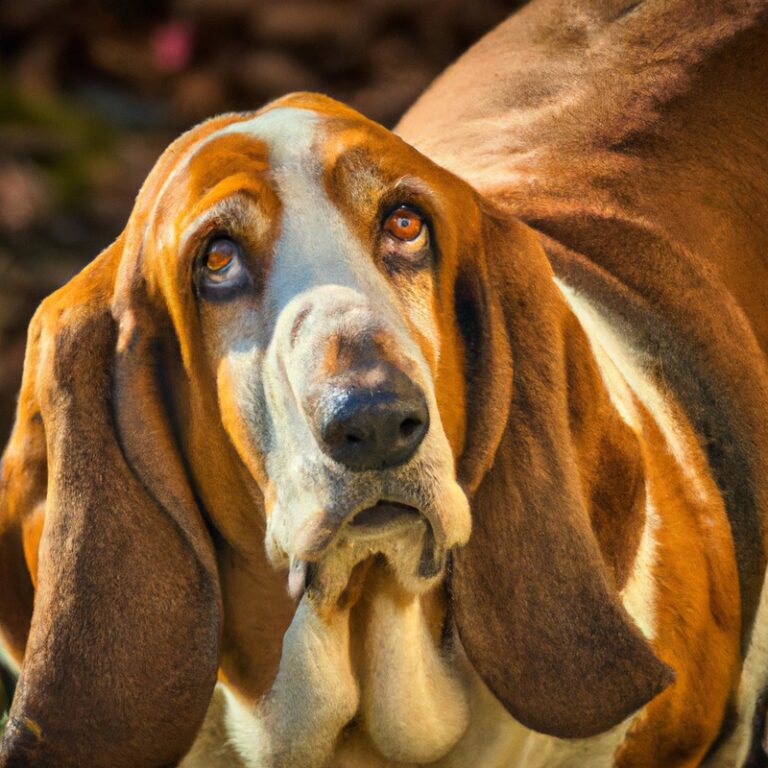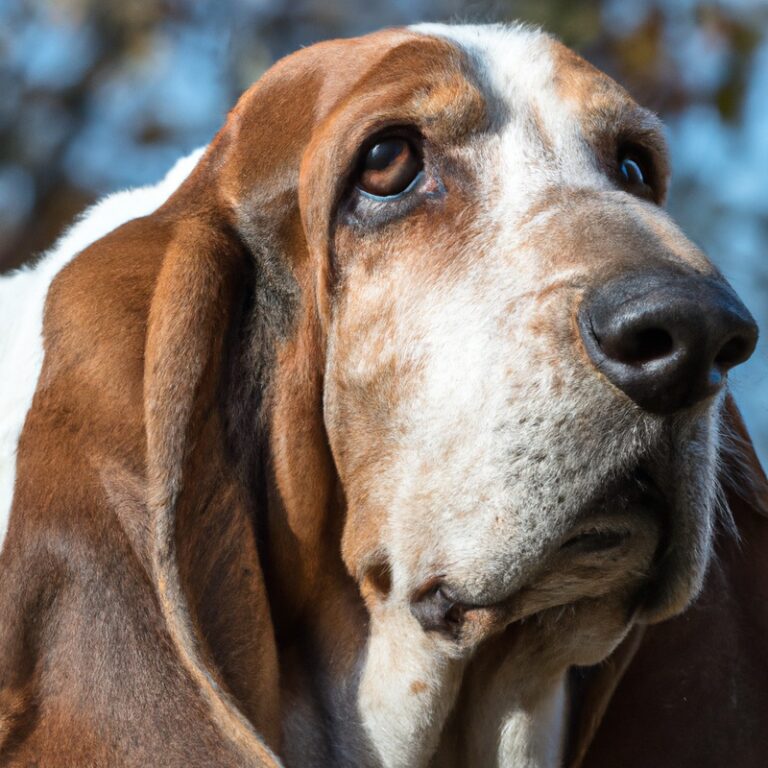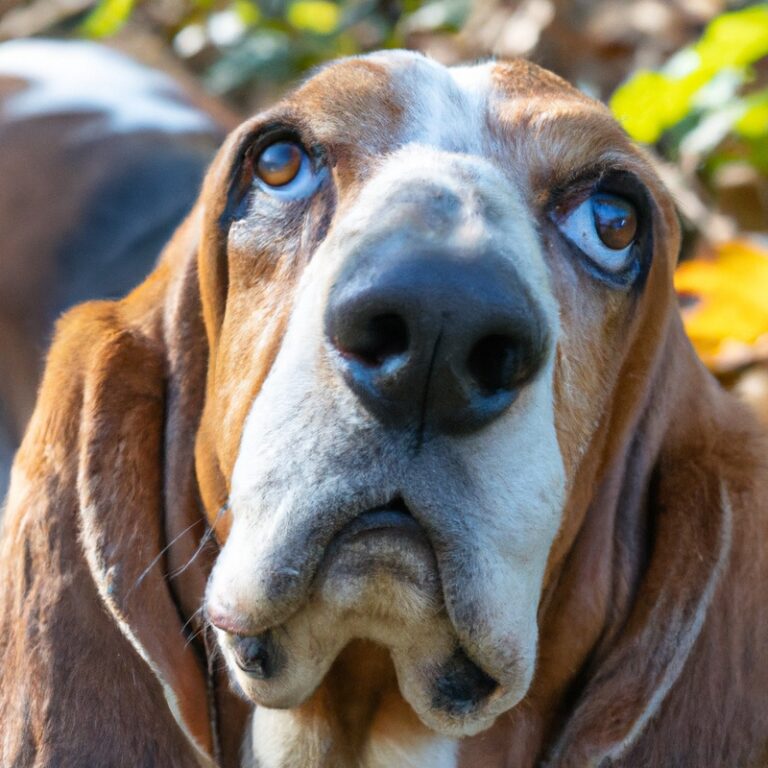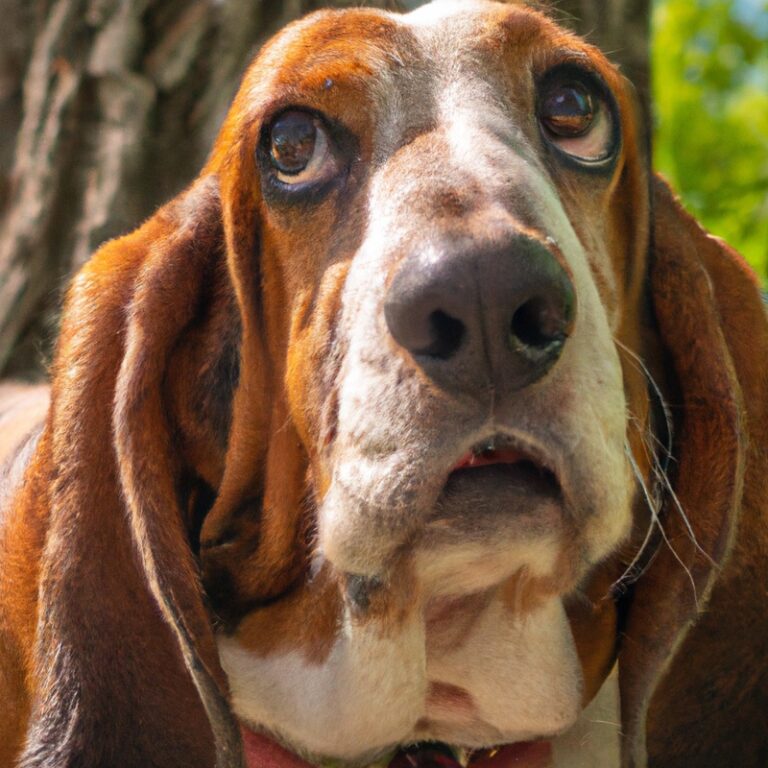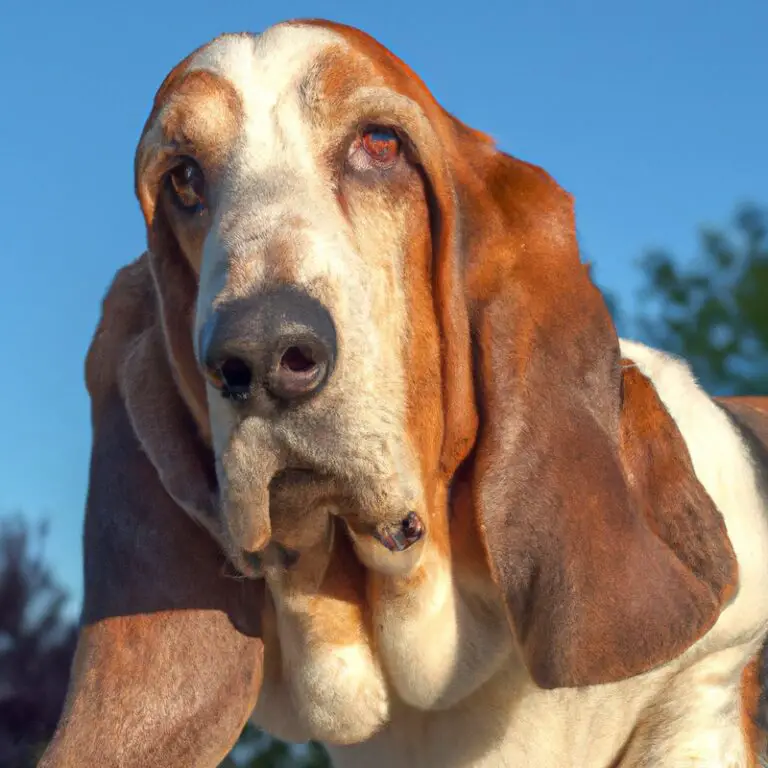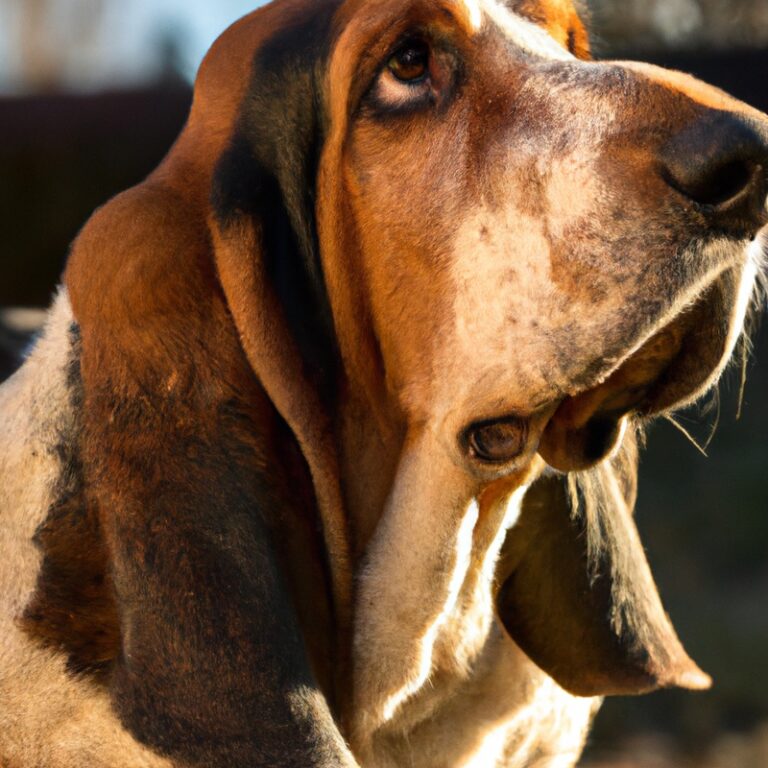Are Basset Hounds Prone To Food Aggression?
Key Takeaways:
- Basset Hounds can be prone to food aggression.
- Early socialization and training can help manage food aggression in Basset Hounds.
- Separate feeding areas and a consistent feeding routine can reduce food aggression in Basset Hounds.
- Seeking professional help is recommended if food aggression in Basset Hounds becomes a serious problem.
Are you a proud Basset Hound owner, curious about their behavior around food? Well, you’ve come to the right place! As a dog expert with years of experience, I’ve had my fair share of encounters with food aggression in various breeds.
In this article, we’ll delve into the world of Basset Hounds and discover whether they are prone to food aggression.
We’ll explore the causes, signs, and even touch on the role genetics plays in this issue. So, grab a snack (but not if you’re a food-aggressive Basset Hound!) and let’s dive in!
| Topic | Are Basset Hounds prone to food aggression? |
|---|---|
| Breed | Basset Hounds |
| Description | Basset Hounds are known for their scenting abilities and are generally friendly and easygoing dogs. |
| Food Aggression | While Basset Hounds can display food aggression like any other breed, it is not commonly seen as a breed-specific trait. |
| Causes of Food Aggression | Food aggression in dogs is typically caused by various factors including genetics, learned behavior, resource guarding, and lack of proper training or socialization. |
| Prevention and Management | Preventing and managing food aggression requires proper training, socialization, regular mealtimes, avoiding food guarding situations, and seeking professional help if necessary. |
Understanding Food Aggression in Dogs
What is Food Aggression?
Food aggression is a behavior exhibited by dogs where they display aggressive or possessive behaviors towards their food. It can manifest as growling, snarling, biting, and guarding their food bowl.
Food aggression is usually triggered by the fear of losing their meal or by resource guarding tendencies.
It is important to address food aggression to ensure the safety of both the dog and anyone around them.
Causes of Food Aggression in Dogs
Food aggression in dogs can have various causes. Some dogs may have a history of resource scarcity or competition for food.
Others may have developed possessive behaviors due to inconsistent or inadequate training.
Fear or anxiety can also contribute to food aggression, as dogs may feel the need to protect their food from perceived threats. Additionally, certain medical conditions, such as hormonal imbalances or gastrointestinal disorders, can influence a dog’s behavior around food.
Understanding these underlying causes is essential for effectively addressing and managing food aggression in dogs.

Signs of Food Aggression in Dogs
Food aggression in dogs can be a serious issue, so it’s important to know the signs.
Here are some common signs of food aggression in dogs:
- Growling or Snapping: If your dog growls or snaps when approached while eating, this can be a sign of food aggression.
- Guarding Behavior: Dogs with food aggression may guard their food bowl, growl when others approach, or even try to bite if someone gets too close.
- Stiff Body Language: Dogs exhibiting food aggression may have a tense or stiff body posture when eating, indicating that they feel threatened.
- Eating Quickly: Dogs with food aggression may eat their food very quickly, as if they are afraid someone will take it away.
- Food Possessiveness: If your dog shows possessive behavior with food, such as hiding or protecting their food, it could be a sign of food aggression.
Remember, it’s important to address food aggression promptly to ensure the safety of everyone involved.
Seeking guidance from a professional dog trainer or behaviorist can be invaluable in managing and resolving food aggression in dogs.
The Role of Genetics in Food Aggression
Genetics plays a significant role in food aggression in dogs.
Certain breeds may be genetically predisposed to exhibit this behavior.
Dogs with a history of food aggression in their lineage are more likely to display it themselves.
However, it is important to note that genetics alone do not determine food aggression.
Other factors such as environment, upbringing, and socialization also play a role.
Understanding the genetic background of your dog can help you better manage and address their food aggression.
Working with a professional and implementing appropriate training techniques can make a difference.
Basset Hounds and Food Aggression
Are Basset Hounds Prone to Food Aggression?
Basset Hounds are generally not prone to food aggression.
They are known for their docile and gentle nature.
However, it is important to note that every dog is unique, and individual personalities can vary.
It is essential to provide proper training, socialization, and establish a routine for mealtime to prevent any potential food-related issues.
Regular veterinary check-ups and observation of their behavior during feeding can help identify and address any signs of food aggression early on.
Factors that Influence Food Aggression in Basset Hounds
Many factors can influence food aggression in Basset Hounds. One important factor is their history and past experiences with food.
If a Basset Hound has ever had to compete for food or faced scarcity, they may develop food aggression.
Another factor is the environment during mealtime. If there are other dogs or stressful distractions around, it can trigger food aggression.
Additionally, genetics can play a role in a dog’s temperament and predisposition to certain behaviors, including food aggression.
It’s important to consider these factors when addressing and managing food aggression in Basset Hounds.
Managing Food Aggression in Basset Hounds
Tips for Preventing Food Aggression in Basset Hounds
To prevent food aggression in Basset Hounds, it’s important to establish a consistent routine for mealtime.
This includes feeding your dog at the same time and in the same location every day.
Avoid free-feeding and make sure your dog knows you are in control of the food.
Gradually introduce other people and animals during mealtime to promote a positive association.
Use positive reinforcement training techniques to teach your Basset Hound basic obedience commands and reinforce good behavior around food.
Seeking professional help from a dog trainer or behaviorist can also be beneficial in managing food aggression.
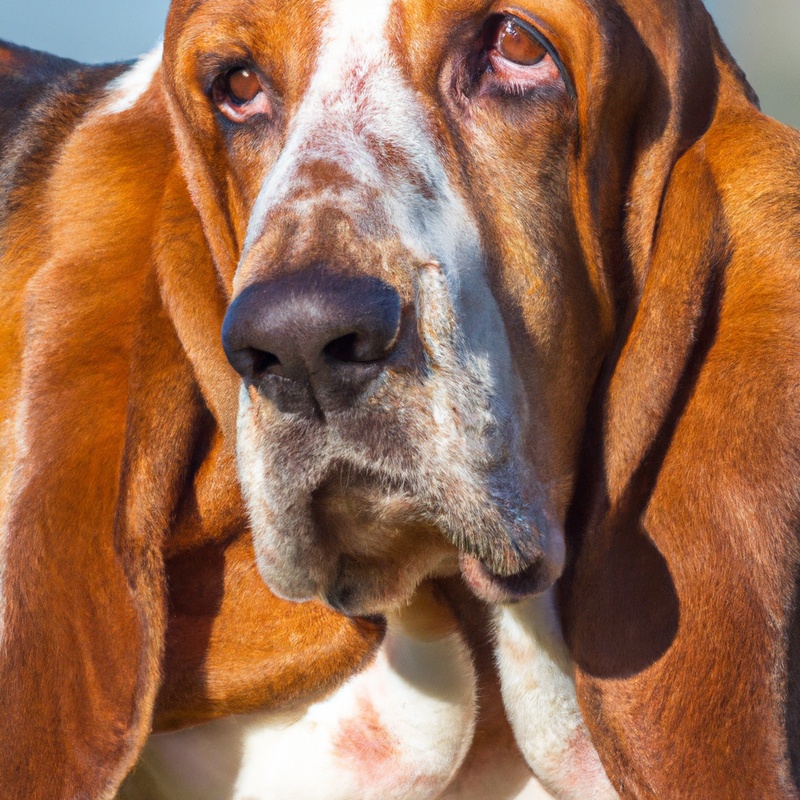
Establishing a Routine for Mealtime
Establishing a routine for mealtime is important in managing food aggression in Basset Hounds.
Here are a few tips to help you create a consistent mealtime routine for your dog:
- Feed your Basset Hound at the same time every day to establish a predictable schedule.
- Choose a quiet and calm area for mealtime to minimize distractions and reduce the potential for aggression.
- Use feeding tools, such as puzzle toys or slow-feed bowls, to engage your dog mentally and slow down their eating pace.
- Avoid free-feeding and instead offer meals in controlled portions to prevent overeating and resource guarding.
- Stay consistent with the routine and reinforce positive behavior during mealtimes. By establishing a routine, you can create a calm and structured environment for your Basset Hound during mealtime.
Training and Socialization Techniques for Basset Hounds
Training and socialization are essential for Basset Hounds to prevent food aggression. Here are some techniques to help you:
- Start early: Begin training and socializing your Basset Hound from a young age to establish good behavior patterns.
- Positive reinforcement: Use rewards and praise to reinforce positive behavior, such as staying calm during mealtime.
- Gradual exposure: Introduce your Basset Hound to different environments, people, and animals in a controlled and positive manner.
- Controlled feeding: Teach your Basset Hound to wait calmly for meals by using commands like “wait” or “stay,” and gradually increase the time between the command and the food reward.
- Consistency: Maintain a consistent routine for feeding and training to establish clear expectations for your Basset Hound.
- Professional help: Consider seeking assistance from a professional dog trainer or behaviorist if your Basset Hound shows persistent food aggression issues.
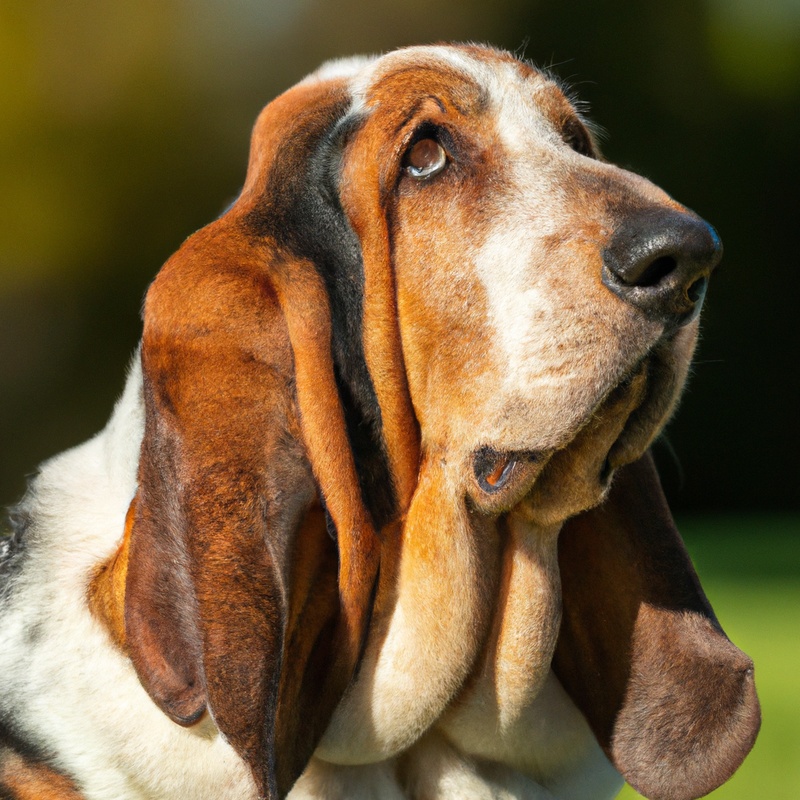
Seeking Professional Help
If you’re dealing with food aggression in your Basset Hound and finding it challenging to manage, seeking professional help can be a great option. A professional dog trainer or animal behaviorist will have the knowledge and experience to assess the situation and provide you with tailored strategies to address the food aggression.
They can guide you in implementing effective training and behavior modification techniques to help your Basset Hound overcome this issue.
It’s always beneficial to get expert advice to ensure the safety and well-being of both your dog and yourself.
Feeding Basset Hounds with Food Aggression
Choosing the Right Type of Food for Basset Hounds
When it comes to choosing the right type of food for Basset Hounds with food aggression, it’s important to consider their individual needs.
Opt for high-quality, balanced dog food that is specifically formulated for medium to large breeds.
Look for options that contain real meat as the main ingredient and avoid artificial additives or fillers.
It may also be beneficial to consult with your veterinarian for personalized recommendations based on your Basset Hound’s age, weight, and any dietary restrictions they may have.
Remember to introduce any changes to their diet gradually to avoid upset stomachs.
The Role of Diet in Managing Food Aggression
Managing food aggression in dogs involves addressing various factors, including their diet. The role of diet in managing food aggression is significant.
Providing a balanced and nutritious diet can help alleviate food aggression in dogs.
It is important to choose food that meets their nutritional needs and supports their overall health. Additionally, feeding strategies such as mealtime routines and separate feeding areas can also contribute to managing food aggression.
Consulting with a veterinarian or an animal behaviorist can provide valuable insights into creating the appropriate diet plan for dogs with food aggression.
Feeding Strategies for Basset Hounds with Food Aggression
Feeding strategies for Basset Hounds with food aggression involve creating a calm and controlled environment during mealtime. Here are some tips:
- Separate and supervise: Feed your Basset Hound in a separate room or crate to minimize competition and prevent aggressive behavior towards other pets or family members.
- Use puzzle toys: Provide interactive feeding toys or puzzles to slow down eating and engage your dog’s mind. This can help redirect their focus and prevent food guarding.
- Positive reinforcement: Reward good behavior around food by giving praise or treats. This reinforces positive associations with mealtime and helps reduce aggression.
- Consistency: Stick to a strict feeding schedule. Predictable routines can reduce anxiety and create a sense of security for your Basset Hound.
- Seek professional help: If your Basset Hound’s food aggression persists or worsens, consult a professional trainer or animal behaviorist for guidance and personalized strategies to address the issue.
Final Verdict
While Basset Hounds may not be inherently prone to food aggression, certain factors can increase the likelihood of this behavior. Understanding and managing food aggression in Basset Hounds is crucial for their well-being and the safety of those around them.
By implementing preventive measures, establishing routines, and seeking professional help when needed, owners can effectively address food aggression in Basset Hounds.
Additionally, choosing the right type of food and implementing feeding strategies can further support the management of this behavior. With patience, consistency, and proper guidance, food aggression in Basset Hounds can be successfully addressed and controlled.

